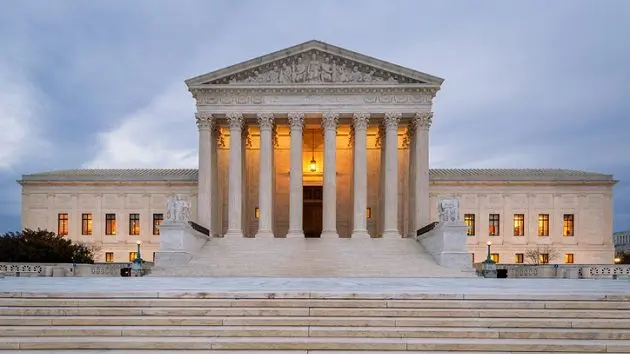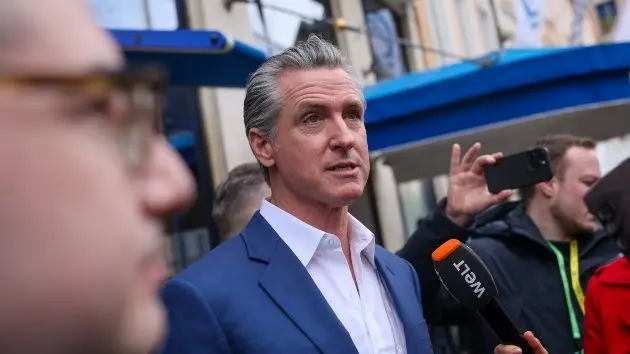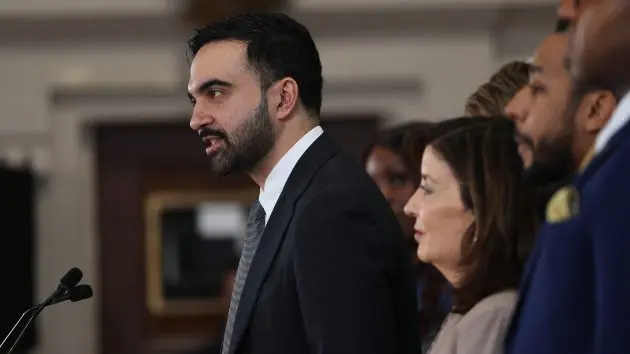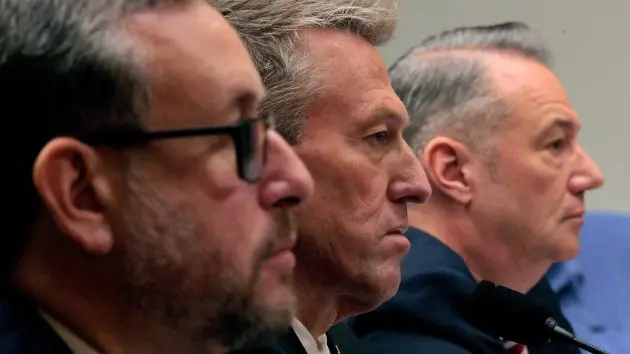
(WASHINGTON) — Back in April, President Donald Trump made his decadeslong view on tariffs the official policy of the United States by imposing sweeping levies on virtually all global trade partners.
On Wednesday, the Supreme Court will consider whether those tariffs are lawful and allowed to stand.
Trump is calling it the “most important” case before the court in its history.
As Supreme Court returns, major tests ahead for Trump’s presidential power
In a sign of his personal stake in the issue, Trump had talked about going to watch the arguments himself, which would have likely made him the first sitting U.S. president to do so. But he reversed course on Sunday, saying he didn’t want to cause a distraction by attending.
“No, I don’t think so, because I don’t want to call a lot of attention to me. It’s not about me, it’s about our country,” he said.
“I wanted to go so badly, I just don’t want to do anything to deflect the importance of that decision,” Trump told reporters on Air Force One as he returned to Washington from a weekend in Florida.
The president has painted the outcome as existential to the country’s future.
“Everybody uses tariffs on us. If I wasn’t allowed to use tariffs on them, we would be a third rate — we would be a third world nation,” Trump said in an interview with CBS’s “60 Minutes” that aired Sunday.
Trump’s yearslong push for tariffs turned reality
When Trump unveiled his tariffs on April 2, a date he dubbed “Liberation Day” for the U.S., he described them as retribution for a grievance he’s held since the 1980s when he was a Manhattan real estate developer.
“I’ve been talking about it for 40 years because I saw what was happening 40 years ago,” Trump said.
“I’d be on a television show, I’d be talking about how we were being ripped off by these countries. I mean, nothing changes very much. The only thing that changed were the countries, but nothing really changes. It’s why it’s such an honor to be finally able to do this,” Trump added.
Trump that day declared trade deficits a national emergency as he hit nearly every country with a baseline 10% tariff rate and tougher, so-called “reciprocal” rates on countries he deemed as the worst trade offenders.
Since then, the administration says it has raked in billions of dollars in revenue and Trump has touted various deals with the United Kingdom, European Union, Japan, South Korea and most recently China.
But the tariff rollout led to economic uncertainty and concerns of price increases for American businesses and consumers. One recent estimate from the Yale Budget Lab said tariffs will cost U.S. households $1,700 per year.
A new poll from ABC News/Washington Post/Ipsos found more than 6 in 10 American disapprove of how Trump is handling tariffs and the economy overall.
Tariffs central to economic agenda, but Trump uses them for more
Trump said on “60 Minutes” that he believed the U.S. economy would “go to hell” if the Supreme Court struck down his tariffs, now the cornerstone of his entire economic agenda.
But he has used tariffs for leverage not just in trade negotiations but in a number of foreign policy matters.
Trump said the threat of tariffs helped him bring an end to international conflicts between Cambodia and Thailand, India and Pakistan and more. He’s used them to pressure Mexico and China into pledging more action to curb the flow of fentanyl and other illicit drugs. Trump imposed a 50% tariff on Brazil over the country’s prosecution of former president Jair Bolsonaro, a hard-line conservative who was convicted of trying to overthrow democracy.
Most Americans say country is on the wrong track, blame Trump for inflation: Poll
Trump relied on the 1977 International Emergency Economic Powers Act to impose his tariffs, sidestepping Congress in the process. Trump on Sunday, during his “60 Minutes” interview, bemoaned it would take Congress too long to act if he didn’t have the power to impose tariffs himself.
“You want that power. You want that executive power,” CBS’s Norah O’Donnell asked Trump.
“You need it to ru– to protect our country. This is a national secure — tariffs are national security,” Trump said.
It’s the biggest– I think it’s one of the biggest decisions in the history of the Supreme Court,” he said.
Copyright © 2025, ABC Audio. All rights reserved.



